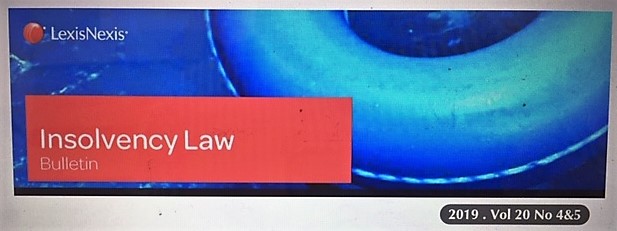The latest issue of the Insolvency Law Bulletin (2019) 20(4&5) covers some very topical issues.
The Halifax Investment Services matter is next in the Federal Court on 13 December. The prospect of a joint Federal Court – New Zealand High Court hearing is on the cards. In Classic cross-border cooperation: joint court hearings in the Halifax insolvency, Paul Apáthy and Hongbei Li of Herbert Sith Freehills explain how the case arose but also suggest that the Federal Court could have gone about its cross-border issues a better way.
With the ‘Anti-phoenix Bill’ on its way through parliament, we not only have the Australian Law Reform Commission questioning the constitutionality of the powers given to ASIC under the Bill [as others have done] but we also have Thomas Gardner of Clayton Utz questioning the provisions in the Bill purporting to restrict the resignations of directors – see The last director standing.
What the Bill is says about “jump-on directors” we will need to wait and see.
Penalties and criminal sanctions in corporate law are much in focus right now. Professor Christopher Symes looks at the recent increases in corporate insolvency penalties, including new methods by which they are calculated – Ratcheting up corporate law penalties and the “bystander” impact on insolvency.
Preferences are a fundamental application of insolvency’s pari passu principle but pursuing and defending them can be fraught with legal detail. In The test of time: unfair preferences and when to value security, Jennifer Ball, Louisa Tan and Sam Frouhar of Clayton Utz look at a Queensland District Court decision of HAG Import Corp concerning when to value a security for the purposes of s 588FA.
My co-editor, Anil Hargovan of UNSW, examines another case on timing, in relation to insolvent franchises – Franchise agreements – when is a franchise debt incurred in the context of insolvent trading law?
And, given all the to-do about thousands of offences being reported to ASIC by liquidators that are not actioned, I examine the offence reporting requirements of liquidators, and trustees, in particular s 533 Corporations Act, and ask whether they might be refined, or perhaps, handed over to the regulators?
Contributions to the Bulletin are welcome.
Michael Murray



